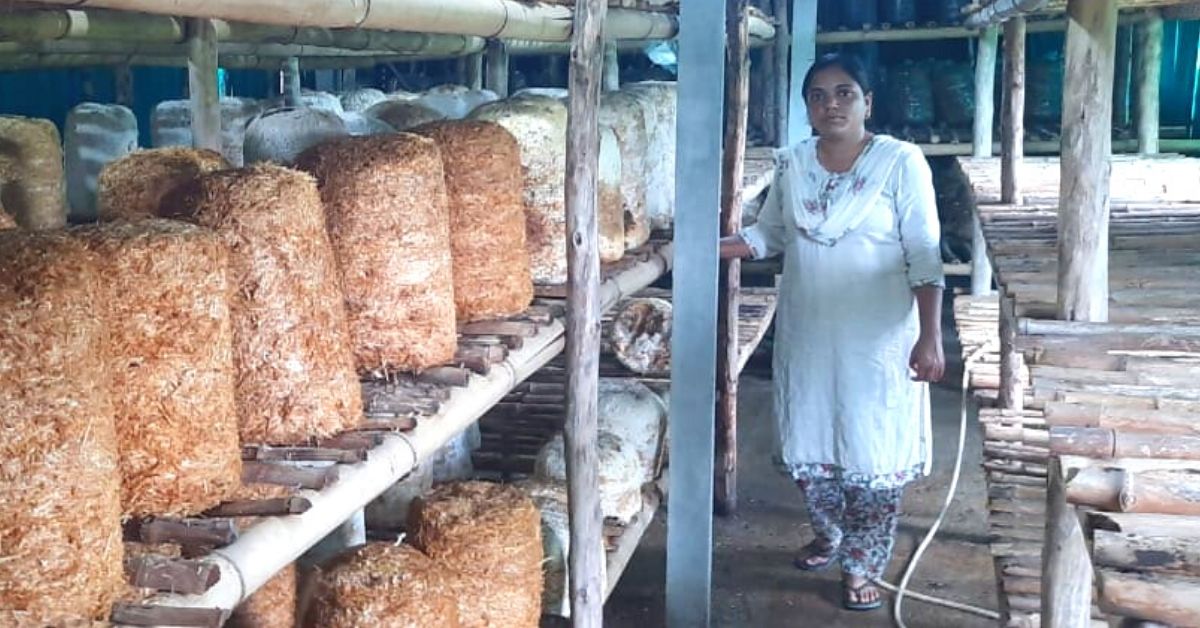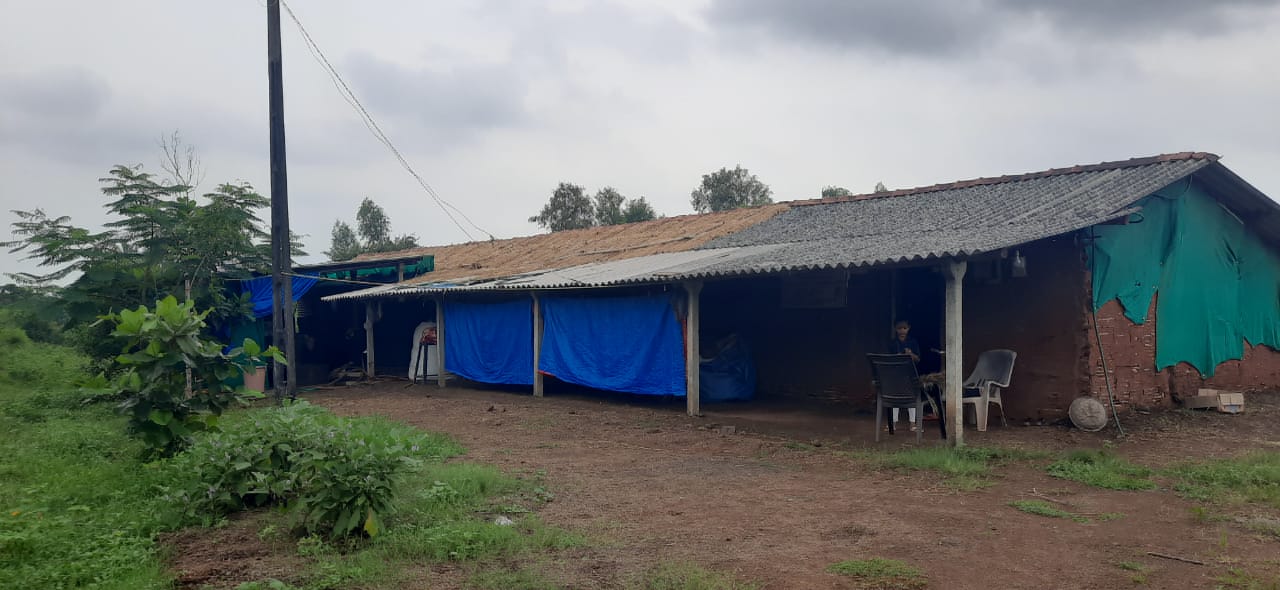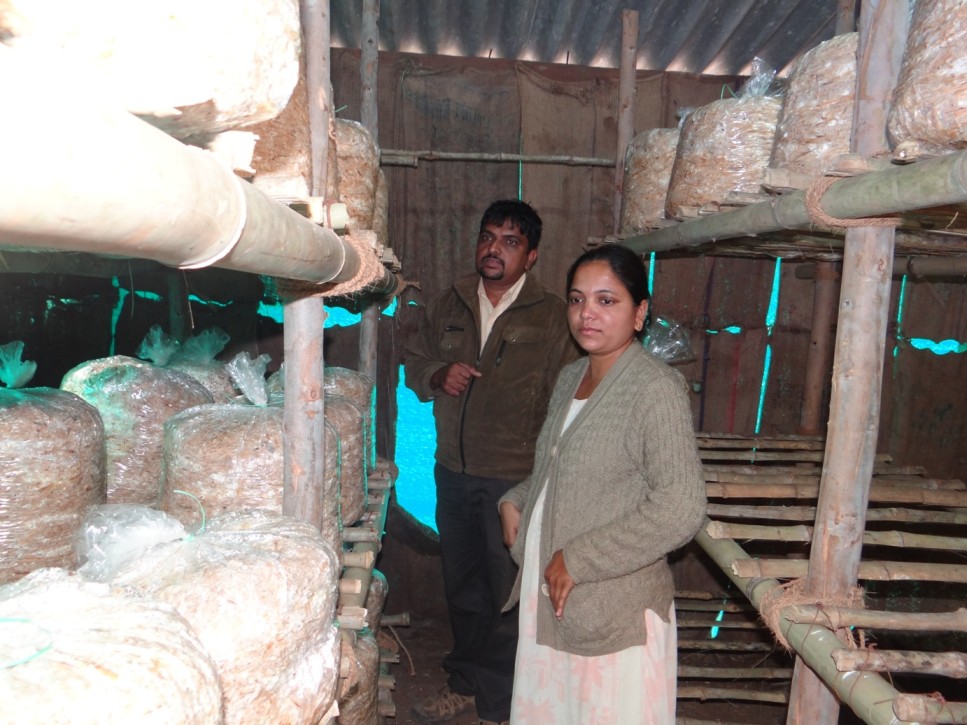Gujarat Engineer Earns Rs 2 Lakh By Growing Mushrooms in Parking Shed. Here’s How
Anjana Gamit from Gujarat began oyster mushroom cultivation three years ago and her profits have increased by 40% since then

If you ever plan any kind of cultivation at home or in your backyard, opt for organic oyster mushrooms as they require less space, time, water and investment. And they will give you a high yield, says Anjana Gamit, a civil engineer from Gujarat’s Tapi district.
Now, you might wonder how an engineer, who also handles her small construction venture, is so confident about growing mushrooms?
Well, to begin with, she has three years of experience, and last year she made a profit of more than Rs 2 Lakh. Not just that, despite a negligible demand for the protein-rich food in her area, she has managed to create her market of potential buyers.
“Not many people in our region are aware of the benefits of mushroom and they often associate it with something that grows during monsoons like algae. Contrary to belief, they are super-nutritious, natural sources of Vitamin D and they also contain antioxidants,” Anjana tells The Better India.
Anjana underwent a 4-day training on mushroom cultivation called ‘Entrepreneurship development through Mushroom Cultivation” at Krishi Vigyan Kendra (KVK). In return, she received raw materials like spawn (mushroom seed) and polythene bags.
The experts at KVK also helped her set up and provided her technical guidance in the initial days.
“KVK has always promoted the concept of organic farming among farmers and regular citizens who wish to grow at a small scale. Through our workshops, we assure people that farming is not rocket science. It requires some expertise and maintenance but that can be acquired with the right guidance. The key reasons for Anjana’s success are her interest and curiosity towards farming. We hope more women like her come forward and learn basic cultivation, if not for selling then at least self-sufficiency,” Sachin Chavan, Scientist (Plant Protection) at KVK tells The Better India.
A Hassle-Free Method

Anjana began her cultivation in a 10×10-foot area of her parking shed and enclosed it with green shade net and bamboo. She harvested around 140 kilos and fetched Rs 30,000 within two months.
Explaining the process, Anjana says,
- Soak the straw in water for five hours to soften it and remove the dirt
- Sterilise the straw in a steamer at a temperature of about a 100 degrees (Alternatively, you can get this temperature in your geyser)
- Keep the straw for cooling in the water at normal temperature and cover it with a banket or thermocol
- Dry the straw overnight
- Mix the straw with seeds and keep them in an air-tight polythene bag and leave it for 18 days
- Once the mushrooms start sprouting tear the bag and carefully remove each mushroom from its roots.
“The entire process takes around 25 days. Ten kilos of spawn can give up to 45 kilos of mushrooms. While the process might seem easy, it is no mean feat as one has to be careful about the temperature, humidity, contamination and quality of seeds. For the first couple of tries, 80 per cent of my cultivation was wasted,” says Anjana. 
To overcome, contamination problem, she uses neem oil and to prevent humidity from spoiling the spawns, she uses an extra layer of coverage on the green shade net. She moistens the curtains and hangs over on all four sides of the shed.
With time and experience, Anjana expanded her cultivation and gradually converted her entire parking shed (25×45 ft). At present, she has 350 cultivation bags of mushrooms.
For beginners who wish to start mushroom farming at home, Anjana says a minimum area of 10×10 ft and investment of Rs 400 is required. One can acquire raw materials from a nursery or horticulture centre.
“Start with a kilo of mushrooms for which you will need half a kilo straw (wheat or paddy) and 50 grams of mushroom seeds. The daily water requirement will be around five litres. For those who are not sure about the temperature, purchase a thermometer. Finally, get plastic bags and a bucket.”
As for marketing of mushrooms, Anjana has tied up with Anganwadi workers and local retail shopkeepers who not only further sell them but also educate people about the health benefits and burst myths like it is non-vegetarian or poisonous.
“It took some time to educate the vendors and customers but now I am planning to make value-added products from mushrooms like chips, pickles, powder, etc. so to make the selling easier,” she adds.
(Edited by Vinayak Hegde)
This story made me
- 97
- 121
- 89
- 167
Tell Us More
We bring stories straight from the heart of India, to inspire millions and create a wave of impact. Our positive movement is growing bigger everyday, and we would love for you to join it.
Please contribute whatever you can, every little penny helps our team in bringing you more stories that support dreams and spread hope.



















